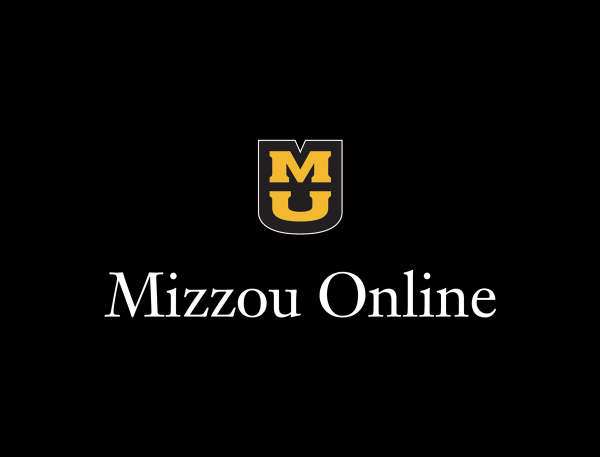
The University of Missouri-Columbia (Mizzou) is dedicated to producing top early childhood education professionals statewide and beyond in a flexible, 100% online early childhood education in a mobile society bachelor’s program. Mizzou is collaborating with the Missouri Head Start Collaboration Office to improve educational access to providers of early childhood education in the state with this innovative program.
“Workforce and staffing issues are serious challenges for most early childhood education programs across the nation, including Missouri,” said Missouri Head Start Collaboration Office Director Stacey Wright.
Mizzou’s flexible online program helps address a nationwide teacher shortage and fulfill a greater purpose for early childhood educators.
“Growing this program will help stabilize and grow the workforce, which will ultimately lead to better outcomes for children and their families,” Program Advisor, Michelle Mathews said.
If you want to teach or work in programs like Head Start, agencies or other early childhood education centers, Mizzou’s early childhood education in a mobile society program may be the degree for you.
Influence in Missouri and beyond
Being an integral part of a child’s early education can have a lasting impact on them for life. According to Mathews, studies show that high-quality childcare is linked to children who perform better in school, have a higher likelihood of graduating and have greater lifetime earnings and other benefits.
In addition to benefits for child learning, investing in early childhood education reduces the burden for working families. In 2013, America’s Edge estimated that for every dollar spent on early education and care in Missouri, an additional 87 cents are generated in new spending in the state, equivalent to $2.41 after inflation. In turn, this reduces turnover for working families with access to high-quality early education and childcare.
“Early childhood is the strongest, biggest infrastructure investment that our state can make,” Missouri Office of Childhood Assistant Commissioner, Pam Thomas said.
This degree will prepare you for work with all children and families including families serving in the military, immigrants or homeless populations. You will be able to provide a holistic approach to early childhood learning to impact future generations.
A mobile society
Graduates of this program set children up for success as infants, toddlers and in preschool up to eight years of age, alleviating hindrances a child may face through life events in an increasingly mobile society.
Earn a degree with the work-life balance you need. Much like the program’s flexibility for early childhood learning, Mizzou provides flexibility for students earning their degrees.
“There’s currently no other online degree designed to deliver this type of degree to students. No matter where you live, how many times you move, you can complete your degree online,” Mathews said.
This program is ideal if you don’t live near a college campus, offered as part of the Great Plains Interactive Distance Education Alliance (IDEA). If you have 30 credits of college courses, you can finish your degree at Mizzou and complete your field experience in partner schools and agencies near you.
More about the program
In 120 credit hours as a freshman, or 69 credit hours as a transfer student, train to lead classrooms or serve in support roles to improve the lives of children and families in your community.
Join a growing field dedicated to understanding the unique needs of children and their families. Courses in child development, developmentally appropriate curriculum, safe learning environments and more span the program’s core curriculum with flexible professional development courses, field experiences and a capstone.
Recognized nationally as a top-ranked “Best Online Program” in two categories by U.S. News & World Report, you can feel confident Mizzou is the right choice for you. You can also work toward a master’s degree in early childhood education, early childhood special education or early childhood special education and autism.
Early childhood education graduate Jennifer Bristow earned an associate degree and had other college credits before transferring into the early childhood education in a mobile society program at Mizzou, which she said was smooth and easy.
“I found that it was a really small group,” she said. “I had a lot of the same students, a lot of the same professors, and I really liked that it made it easy to work with people, it made it easy to communicate with professors and made it really easy to learn that way.”
She said the faculty was accommodating and willing to work with her personal schedule.
“I knew that I had a good support system, and I had everything I needed to be successful. I had a space to work. I had faculty support before I even started courses.”
Bristow enjoyed the professional development aspect of the degree program.
“Field experience was incorporated into the core of this degree,” Bristow said. “I went to three different sites and learned how to be a teacher from different sources. The best part was seeing how a classroom works.”
She also found the program personally rewarding.
“It has not only prepared me to be an early childhood educator, but it's also prepared me to have my own family, raise my own children and help when my friends have children. It is really something I can take outside of the classroom and use for the rest of my life.”
Contact us
For more information, visit the early childhood education in a mobile society page or contact an advisor to get started.
Michelle Mathews
Associate Teaching Professor and Advisor
MathewsM@missouri.edu
573-882-3999